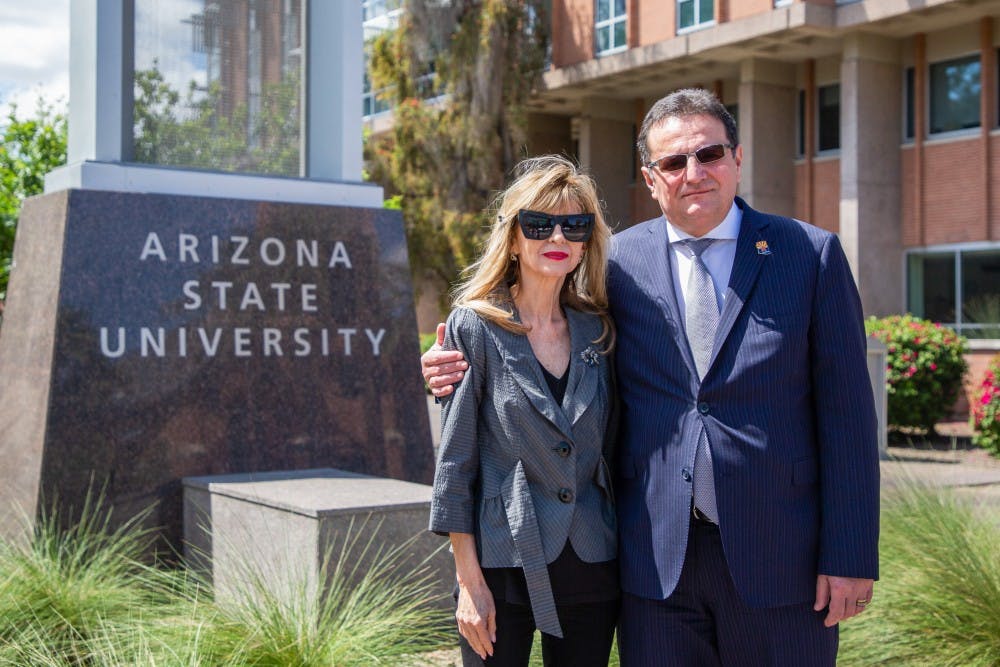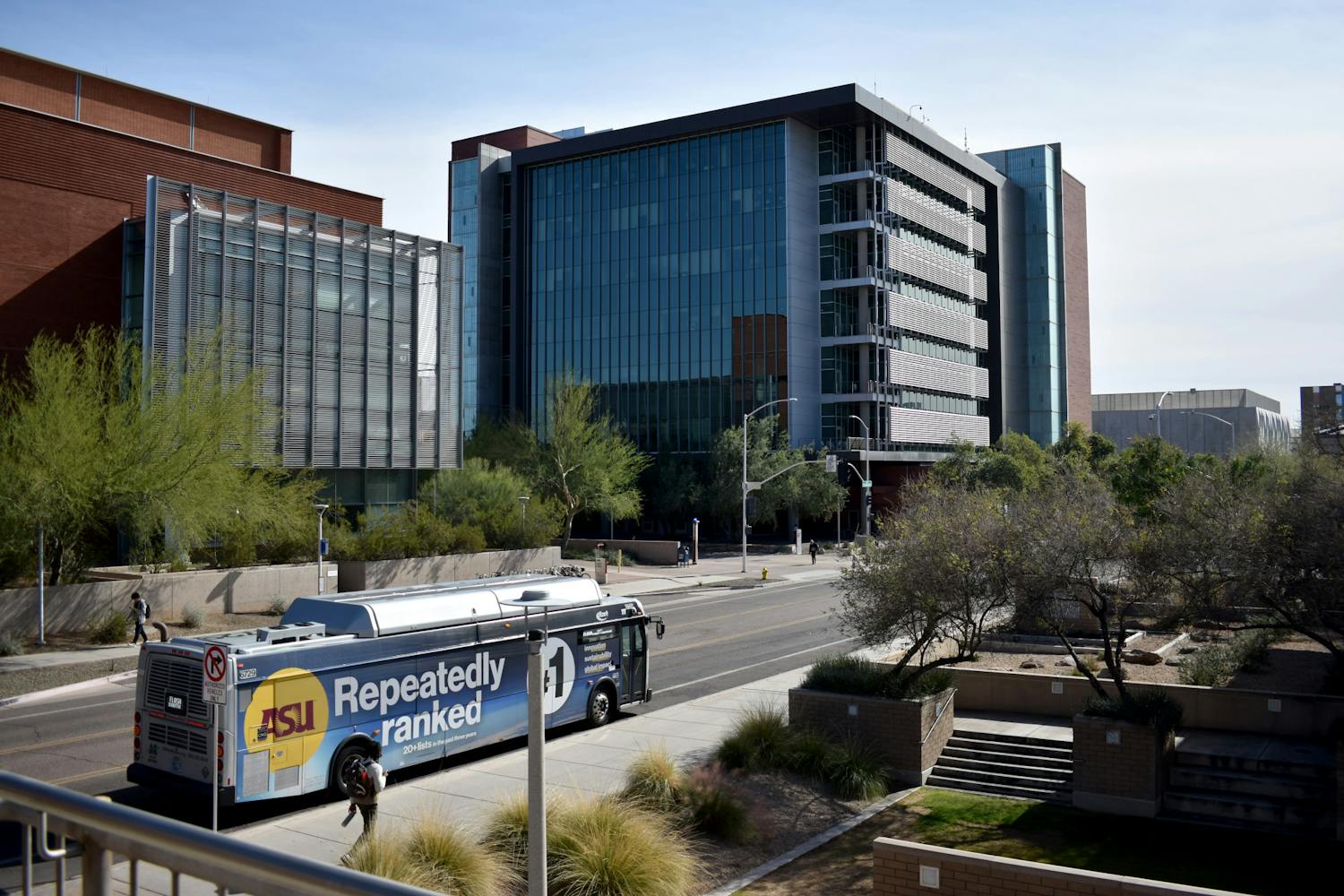The Romanian ambassador to the U.S. met with state and ASU officials this week to bolster the relationship between Arizona and Romania, discussing issues like trade, politics and academia in his first visit to the state.
Ambassador George Maior was hosted by Rep. Ben Toma (R-Peoria). His visit follows a meeting that the two had in D.C. last year. Toma said that ASU’s strong Romanian studies program was a draw for the ambassador to visit the state, among other interests.
"The purpose of the visit was primarily introductional," Toma said. "I believe this was the first time the ambassador has come out to Arizona, and I do know that he is very interested as are most Romanians here in Arizona in furthering trade with Romania."
The visit creates an opportunity for the U.S. to enhance ties with a country located in a strategic region for American interests. Arizona also has a sizable Romanian American population, said Toma, who is Romanian-born.
ASU plays a significant role in fostering this relationship, Maior said, because of its Romanian studies program, which is the largest one in the world outside of Romania.
The program is directed by Ileana Orlich, the Honorary Consulate General of Romania in Phoenix.
Orlich was named an ASU President’s Professor and director of the Romanian and Central European Collaborative at ASU, which allows students to study at Romanian universities like Babeș-Bolyai University in Cluj, Romania.
"Having a very active consulate general gives the possibility of relating the work here with the world of diplomacy and communication with society at this level," Maior said during a meeting with The State Press.
But the relationship between ASU and Romania goes beyond academic partnerships.
"We have a wonderful and strong partnership with your country in many areas," Maior said. "Security, political dialogue, but also economics."
The ambassador also met with Arizona Gov. Doug Ducey and spoke before the state House of Representatives about trade partnerships between Arizona and Romania, which does business with Arizona-based companies like Raytheon Missile Systems, based in Tucson.
That relationship, which Toma describes as one based on a set of shared values, has international security implications as well.
"Having friends in that region, especially essentially right there close to potential instigators, the Russians for example, is a good thing," he said. "There are potential benefits to the U.S. and to NATO having such a strong friend so close to people who are less than friendly, shall we say."
Maior echoed that sentiment, saying that "Romania is playing a role in the sense that it is helping and assisting NATO and allies like the U.S. in projecting stability in this part of the world in a difficult period of time."
Tensions have increased in the region, with Russia taking the controversial step of annexing Crimea against the will of the international community in recent years, and the ongoing conflict the country has with Ukraine.
The tensions were compounded with a disinformation campaign that the U.S. intelligence community concluded meddled in the 2016 presidential election, a controversy Maior alluded too.
The strategic importance of the Romania-U.S. relationship is also a consideration for ASU, but just one part of the broader goal of ASU’s initiative to expand its global reach, according to Matt Salmon, former Republican congressman and ASU’s vice president of government affairs.
"That region of the world is a very strategic important region of the world for the United States in general," Salmon said. "But ASU has been really reaching out to a whole host of different countries and developing partnerships."
He said that ASU has an ongoing effort to foster partnerships with different universities in countries like Vietnam, Mexico, China, countries in the Middle East and Russia.
Maior said that the language program at ASU, which has led to a dialogue between the countries, is "the oldest, the most consistent and has developed a lot in quality over the years," pointing to the value of discussions between all academic institutions in the region and with international partners.
"Through these type of discussions, I believe that ideas for constructive diplomacy for example in the region can be generated," he said. "And I’ve discussed here at your University the possibility of enhancing the cooperation and other interactions that you have with other universities from Romania."
Salmon said that programs like this raise the value of the whole University, and not just for students studying Romanian or other global pursuits.
"I think the the more and more we enhance our footprint, I think it gives us more credibility. And when students are interviewing for positions, it strengthens our value," he said. "Today, a university has to be very, very involved in international global affairs or they aren't relevant."
Reach the reporters at isaac.windes@asu.edu or follow @isaacdwindes on Twitter.
Like The State Press on Facebook and follow @statepress on Twitter.




